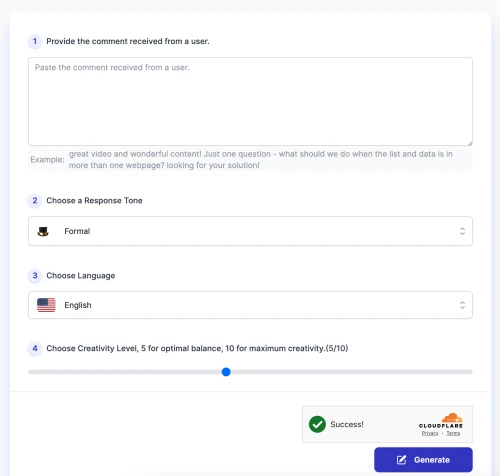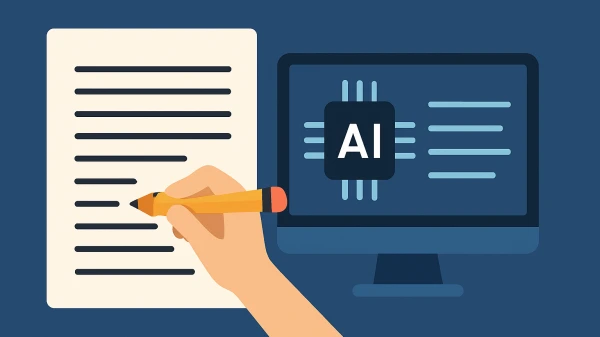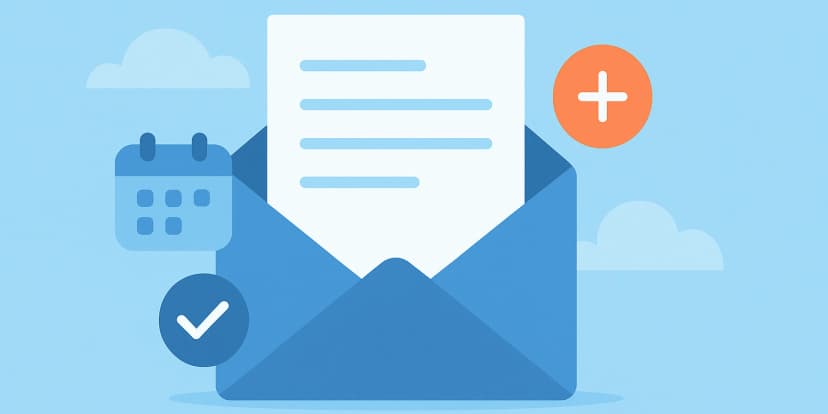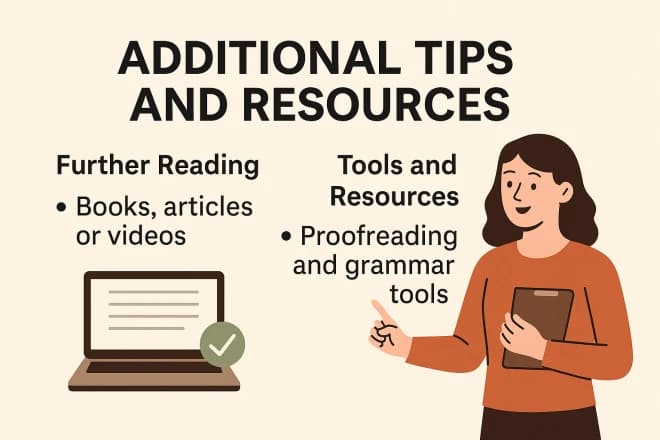Unlock Insights: Find the Answers You Seek on Our Blog
Master Your Executive Assistant Cover Letter: Templates, Examples, and Pro Tips
By Evelyn Sterling
An executive assistant is essential in business, providing critical support that allows leaders to make strategic decisions. With their role being highly competitive, crafting an effective cover letter is crucial for showcasing one’s skills and securing the position. This document should highlight the candidate’s organizational, communication, problem-solving abilities, and their fit with the company, setting the stage for potential interviews and career advancement.
This blog post will guide you in crafting a compelling cover letter for an executive assistant position, covering necessary skills, providing templates and examples, and offering tips to effectively present your credentials and stand out as a candidate, thereby paving the way for your career advancement.
Analyzing the Executive Assistant Position
The role of an executive assistant is much more than just administrative support; it is crucial to the success of both executives and the organization.In today’s fast-paced corporate environment, they play a key role in ensuring smooth daily operations, optimizing executive productivity through effective schedule management, and serving as the crucial link between the executive and various stakeholders. By managing essential tasks and making strategic decisions, executive assistants enable leaders to concentrate on high-level strategic and leadership functions.
Significance in Organizations
An executive assistant’s influence permeates various aspects of the business. They are often involved in preparing important documents, organizing high-level meetings, and coordinating between departments to facilitate communication and project completion. Their strategic position within the organization allows them to contribute insights that can influence decision-making processes. The role is therefore crucial not only for the efficiency it brings but also for its contribution to the organizational structure and strategic alignment.
Key Skills and Competencies
To excel as an executive assistant, certain skills and competencies are indispensable:
- Organization: Mastery of organizational skills enables executive assistants to manage complex schedules, maintain files, and ensure that all tasks are prioritized and completed efficiently.
- Time Management: The ability to manage time effectively is crucial. Executive assistants must juggle various tasks, from scheduling meetings to coordinating travel arrangements, ensuring optimal use of the executive’s time.
- Communication: Clear and effective communication, both written and verbal, is essential. Executive assistants often serve as the communication hub, needing to convey messages accurately and diplomatically to various internal and external stakeholders.
- Confidentiality: Handling sensitive information with discretion and integrity is a fundamental aspect of the role. Executive assistants must be trustworthy, ensuring that all confidential information remains secure.
- Problem-Solving: The ability to think on one’s feet and solve problems efficiently is critical. Executive assistants must navigate challenges and find solutions that align with the executive’s goals and organizational policies.
- Technology Proficiency: In the modern workplace, being adept with technology is non-negotiable. From managing digital calendars to using various software applications for data management and communication, tech skills are vital.
The position demands a high level of professionalism, adaptability, and a skill set that encompasses organization, time management, communication, confidentiality, problem-solving, and technology proficiency. Understanding these aspects is the first step to crafting a cover letter that showcases your ability to excel in this dynamic and pivotal role.

Executive Assistant Cover Letter Templates and Formats
A well-structured cover letter can make a significant difference in how your application is perceived. It should be succinct, yet comprehensive enough to highlight your strengths and suitability for the executive assistant position. Here’s a closer look at the standard structure of a cover letter and a basic template to guide you.
Structure of a Cover Letter
A cover letter typically consists of the following components:
- Header: This includes your contact information, the date, and the recipient’s details.
- Introduction: A brief section where you introduce yourself and express your interest in the position.
- Body: Usually one or two paragraphs that detail your relevant experience, skills, and achievements.
- Conclusion: A closing section where you reiterate your interest, thank the reader, and include a call to action.
Basic Template
Here’s a template that incorporates these elements:
[Your Name]
[Your Address]
[City, State, Zip]
[Your Email]
[Your Phone Number]
[Date]
[Recipient’s Name]
[Recipient’s Title]
[Company Name]
[Company Address]
[City, State, Zip]
Dear [Recipient’s Name],
Introduction:
Start with a greeting and a brief introduction. Mention the position you are applying for and where you found the job listing. Express your enthusiasm for the opportunity and give a brief overview of your background and how it aligns with the role.
Body:
In the first paragraph, delve into your professional experience, specifically focusing on your roles and responsibilities that relate to being an executive assistant. Highlight key achievements, quantifying them with data if possible (e.g., “Managed a calendar for a CEO in a multinational company, coordinating over 100 meetings monthly”).
In the second paragraph, discuss your skill set and how it complements the requirements of the executive assistant position. Talk about your organizational abilities, communication skills, problem-solving capabilities, and any other relevant competencies.
Conclusion:
Conclude by reiterating your interest in the position and stating that you look forward to the opportunity to discuss further how you can contribute to the company. Express your gratitude for considering your application.
Sincerely,
[Your Name]
By using this template and structure as a guide, you can craft a cover letter that effectively communicates your qualifications and enthusiasm for the executive assistant role, setting the stage for a positive impression with potential employers.
Examples of Successful Executive Assistant Cover Letters
Below are examples of executive assistant cover letters that have effectively captured the attention of hiring managers, leading to successful job interviews. We will analyze each example to understand what makes them stand out.
Example 1:
Jane Doe
123 Main Street
Anytown, CA 12345
jane.doe@email.com
(555) 123-4567
July 1, 2023
Mr. John Smith
Director of Operations
ABC Corporation
456 Business Rd.
Business City, CA 54321
Dear Mr. Smith,
I am writing to express my interest in the Executive Assistant position at ABC Corporation, as advertised on LinkedIn. With over five years of experience in high-level support roles, I have honed my skills in time management, organization, and confidential communication, making me an ideal candidate for this position.
In my previous role at XYZ Company, I supported a team of senior executives, managing complex calendars, coordinating international travel, and facilitating communication between departments. My ability to adapt quickly to changing priorities and handle sensitive information discreetly has been key to my success. For instance, I led the coordination of a confidential merger, which involved meticulous planning and strict confidentiality, demonstrating my capability to manage high-stakes projects efficiently.
I am particularly drawn to the innovative culture at ABC Corporation and am eager to bring my strong work ethic and proven track record to your esteemed company. I am confident that my proactive approach and dedication to excellence will contribute significantly to the success of your team.
Thank you for considering my application. I look forward to the opportunity to discuss how my skills and experiences align with the needs of ABC Corporation.
Sincerely,
Jane Doe
Analysis:
This cover letter is effective because it:
Personalizes the greeting: Addresses the hiring manager by name, creating a personal connection.
Specifies the source of the job listing: Shows attention to detail and interest in the company.
Highlights relevant experience: Clearly relates past work experiences to the job description, demonstrating how the candidate is a good fit.
Provides specific examples: Uses concrete instances of past responsibilities and achievements, giving credibility to the candidate’s claims.
Expresses enthusiasm for the company: Shows genuine interest in the company’s culture and mission, indicating that the candidate has researched the organization.
Example 2:
Michael Johnson
789 Broadway Ave
Cityville, ST 67890
michael.johnson@email.com
(555) 987-6543
August 15, 2023
Ms. Emily White
Human Resources Manager
Tech Innovations Inc.
123 Silicon Blvd.
Tech City, ST 67890
Dear Ms. White,
I am excited to apply for the Executive Assistant role at Tech Innovations Inc., as I have long admired your company’s commitment to pushing technological boundaries. My extensive background as an executive assistant in tech startups has equipped me with a unique blend of skills perfectly suited for this role.
At StartUp Co., where I worked for three years, I managed the CEO’s hectic schedule and was responsible for organizing large tech events, often hosting over 500 participants. My role required a high level of technological proficiency, including managing virtual meeting platforms and integrating various scheduling apps to streamline office operations.
Your company’s forward-thinking approach and dedication to innovation resonate with my professional aspirations. I am keen to leverage my expertise in a dynamic environment like Tech Innovations Inc. to contribute to your continued success.
I look forward to the possibility of discussing how my experience in tech environments and my passion for innovation can be a great match for your team. Thank you for considering my application.
Best regards,
Michael Johnson
Analysis:
This cover letter stands out due to its:
Targeted approach: Tailors the letter to the specific industry and company, showing that the candidate is a good fit.
Industry-specific language: Uses terminology related to the tech sector, demonstrating familiarity with the industry.
Detailing of relevant skills: Explains how past experiences and skills are directly applicable to the role he is applying for.
Passion for the company’s mission: Indicates a genuine interest in the company’s goals and how the candidate’s goals align with them.
Both examples showcase how to structure a cover letter effectively, with a clear introduction, detailed body paragraphs highlighting relevant experiences and skills, and a strong conclusion expressing enthusiasm and interest in the position.
Writing Tips for Executive Assistant Cover Letters
Crafting a cover letter as an executive assistant requires a balance of personalization, professionalism, and precision. Here’s how you can tailor your cover letter to make a strong impression on potential employers.
Tailor the Cover Letter to the Job and Company
- Research the Company: Understand the company’s mission, values, and culture. Use this knowledge to explain why you are a good fit for both the position and the organization.
- Match the Job Description: Carefully read the job listing and note the key skills and experiences required. Address these points directly in your cover letter, providing examples from your past that demonstrate your qualifications.
Showcase Relevant Experiences, Skills, and Achievements
- Use Specific Examples: Rather than stating you have certain skills, provide concrete examples of how you have used these skills in your previous roles. For instance, mention a project where your organizational skills were crucial to success.
- Quantify Your Achievements: Whenever possible, use numbers to highlight your accomplishments. For example, “Managed a calendar for 5 executives across 3 time zones,” gives a
clearer picture of your capabilities. - Highlight Transferable Skills: If you’re changing industries or have a diverse professional background, focus on the skills and experiences that are transferable to the executive assistant role.
Maintain a Professional Tone and Keep the Content Concise
- Professional Tone: Use formal language and avoid slang or overly casual phrases. The tone should reflect the seriousness of the executive assistant role and your professionalism.
- Be Concise: Your cover letter should ideally be one page. Keep your sentences clear and to the point. Every sentence should add value and contribute to presenting you as the ideal candidate.
- Customize Your Introduction and Conclusion: Start with a personalized greeting to the hiring manager, and conclude with a strong closing statement that reiterates your interest and invites further discussion.
By following these tips, you can craft a compelling executive assistant cover letter that not only showcases your skills and experiences but also demonstrates your enthusiasm for the job and alignment with the company’s values and goals. This tailored approach will help set you apart from other candidates and increase your chances of securing an interview.
Industry-Specific Language and Keywords
In the field of executive support, certain terms and phrases resonate with the role and demonstrate a professional understanding of the position. Incorporating these into your cover letter can signal to employers that you’re familiar with the industry’s requirements and culture.
Commonly Used Terms and Phrases
- Discretion: Handling sensitive information with confidentiality.
- Gatekeeper: Managing access to the executive, both in terms of scheduling and communication.
- Liaison: Serving as the intermediary between the executive and other stakeholders.
- Time Management: Prioritizing tasks to manage an executive’s schedule effectively.
- Logistics Coordination: Arranging travel and meeting details.
- Project Management: Overseeing projects from conception to completion.
- Strategic Planning Assistance: Helping to prepare for and organize strategic initiatives.
- Executive Support: General term for the various administrative and support duties performed.
- Calendar Management: Organizing and maintaining the executive’s schedule.
- Meeting Facilitation: Ensuring that meetings are well-organized and productive.
Incorporating Industry-Specific Language
- Tailor Your Language to the Job Description: Mirror the language used in the job posting. If they ask for someone with “exceptional calendar management skills,” use that exact phrase.
- Show, Don’t Tell: Use these terms in context. Instead of saying you have great “time management” skills, give a brief example or a quantifiable accomplishment that demonstrates this skill.
- Industry Acronyms: If applicable, use acronyms that are known in the field, but only if you’re confident in your understanding of them.
- Action Verbs: Pair these terms with strong action verbs. For example, “Coordinated international travel for C-level executives, ensuring seamless logistical arrangements.”
Using the right industry-specific language and keywords in your cover letter can significantly increase your chances of passing the initial screening process, especially with companies that use automated systems to filter applications. It demonstrates that you’re not only familiar with the terminology but that you also possess the experiences and skills that are directly relevant to the executive assistant role. Remember to use these terms naturally and authentically to reflect your true professional background and capabilities.
Leveraging AI Cover Letter Generator for Personalized Applications
In the competitive job market, particularly for executive assistant positions, a personalized and well-crafted cover letter is essential. An AI Cover Letter Generator can be a valuable asset in this process, combining personal insights with the efficiency of technology to create standout applications.
How AI Cover Letter Generator Enhances Your Application
- Customization: AI cover letter generator can help tailor your application to the specific job and company by incorporating keywords and phrases from the job description. This ensures that your cover letter speaks directly to the requirements and culture of the organization.
- Inspiration: Sometimes, starting your cover letter can be the hardest part. AI tool offers templates and examples that can spark ideas and help you find the right words to express your qualifications and enthusiasm.
- Efficiency: By automating the structure and format of your cover letter, these generators save you time, allowing you to focus on refining the content to highlight your unique skills and experiences.
Integration with Traditional Writing Tips
While AI cover letter generator provides a solid foundation and streamline the writing process, it’s important to complement this technology with the personalized strategies discussed earlier:
- Personal Insight: After generating a draft with an AI tool, infuse your personal insights, specific examples of your work, and any notable achievements to add depth and authenticity to the cover letter.
- Review and Customize: Use the generated cover letter as a starting point. Ensure it aligns with the job’s key competencies, and tailor the content to reflect your understanding of the company’s values and needs.
- Professional Polish: Maintain a professional tone and keep the content concise and impactful. Even with AI assistance, the final touch should always be human, ensuring the cover letter feels personal and sincere.
Using Free AI cover letter generator, along with careful personalization and strategic content improvement, can produce a compelling application. This combination ensures your cover letter goes beyond basic expectations, connecting with the hiring manager and highlighting you as the perfect fit for the executive assistant role.
How to Use the Cover Letter AI Generator: Step-by-Step Guide

- Step 1. Input Your Draft: Start by pasting a brief draft of your cover letter into the text box. Include details about your work experience, educational background, and the specific skills that are relevant to the job you’re applying for. Make sure to mention the job title and the industry as well.
- Step 2. Choose a Tone: Select the tone you want the cover letter to convey. In most professional settings, “Professional and Polite” would be appropriate. This sets the language style the generator will use to ensure it’s suitable for a business environment.
- Step 3. Select Language: Choose the one you want your cover letter to be in.
- Step 4. Set Creativity Level: Adjust the creativity level slider. A middle setting, as shown in the screenshot, balances professionalism with a touch of creativity to make your cover letter stand out without being overly flashy or informal.
- Step 5. Generate: Click the “Generate” button. The AI generator will process your input and generate a cover letter tailored to your details and preferences.
- Tips for Using the AI Cover Letter Generator
- Be Specific in Your Draft: The more specific you are about your experiences and skills, the more tailored and effective the AI-generated cover letter will be.
- Review and Edit: After the cover letter is generated, thoroughly review it to ensure it aligns with your personal style and the nuances of the job description. Add any additional details that you think might strengthen your application.
- Use as a Starting Point: Consider the output as a starting point. It’s important to infuse the final cover letter with your own voice and any nuanced insights about the company that the AI might not capture.
- Follow Up: Since an AI is generating the cover letter, double-check for any errors or awkward phrasing that may have been overlooked by the AI.
By following these steps and tips, you can use the AI Cover Letter Generator to quickly draft a cover letter that can then be fine-tuned to reflect your unique qualifications for the position you’re targeting.
Conclusion
In conclusion, creating an effective cover letter is crucial when applying for an executive assistant role. It’s important to understand the role’s significance, the necessary skills, and how to present these effectively using a clear template and specific examples. Tailor your cover letter to each job, highlighting your unique value and fitting within professional norms. Utilize industry-related language and keywords to catch the attention of hiring managers and tracking systems.
Your cover letter should showcase your professionalism, ability to meet the role’s demands, and enthusiasm for the opportunity. This attention to detail and proactive approach are key traits for an executive assistant. A well-crafted cover letter not only presents your qualifications but also demonstrates your potential to contribute significantly to the organization, setting you apart as a notable candidate ready to advance in your career.
AI Tools Categories
Browse all AI tools by category
All AI Tools
229Amazon
5AI Writing Generator
85Article & Content Writing
35Branding & Identity
54Content Generation
170Creative Ideas
32Educational Resources
34E-commerce
14Etsy
6Events & Celebrations
13Facebook
6Gaming & Fun
5Instagram
3Lifestyle & Personal
8LinkedIn
6Marketing & SEO
40Poem & Lyrics Writing
19Professional Documents
31Social Media
44Story & Book Writing
49Text Effects
14TikTok
7Twitter
3Writing Enhancement
36YouTube
11
Highly rated and most popular AI tools curated by our experts
Recently added AI tools that are gaining traction
- AI Post Generator

- AI Bullet Point Generator

- AI Discussion Post Generator

- AI 2 Weeks Notice Letter Generator

- AI Content Creation Ideas Generator

- AI Radio Ad Script Generator

- AI Podcast Script Generator

- AI Resume Objective Generator

- AI Resume Headline Generator

- AI Password Generator

- AI Snapchat Caption Generator

- AI Snapchat Username Generator

- AI Pinterest Board Name Generator

- AI LinkedIn Experience Description Generator

- AI Twitter Hashtag Generator

- AI YouTube Short Idea Generator

we prioritize displaying the latest content closely related to the current blog post.







